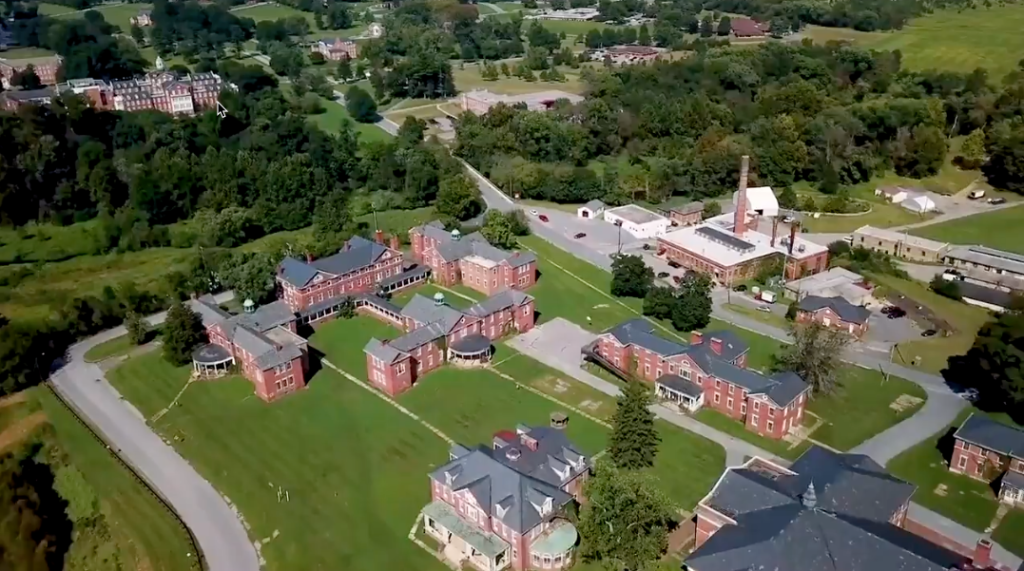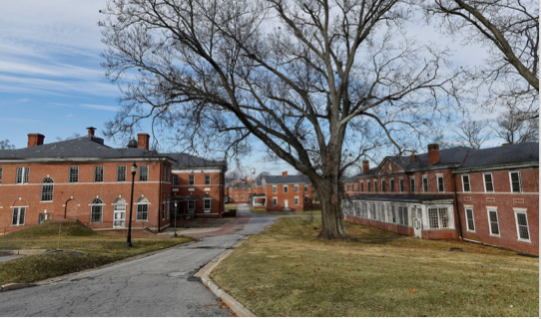Town of Sykesville appeals its violation of Maryland’s Open Meetings Act
The town of Sykesville has appealed a judicial review that found the Town Council and Mayor Stacy Link in violation of the Open Meetings Act, a statute that requires public bodies to hold meetings in public, to give the public adequate notice of those meetings and to allow the public to inspect meeting minutes.
The town filed the appeal Nov. 14 in Carroll County Circuit Court, according to court documents. An order dated Dec. 9, states that a hearing will be set no earlier than 15 days after the date that the Open Meetings Compliance Board files a response to the petition for judicial review. A letter from the Compliance Board dated Dec. 16 acknowledges that a petition for judicial review has been filed.
The town is asking the court to review a seven-page opinion issued by the Open Meetings Compliance Board on Oct. 31 that states the council, which consists of the mayor and six council members, violated the act when a quorum of the council attended Sykesville Planning Commission meetings on Feb. 7 and March 21.
The compliance board determined that at both meetings the Sykesville Town Council received information about a matter of public business that would come before the Planning Commission for a vote.
“Under the facts here, the receipt of information as part of a step in the process for a matter that was certain to come before the council was the consideration of public business and thus constituted ‘meetings’ of the council on February 7 and March 21,” the Open Meeting Compliance Board stated in its opinion. “The meeting notices, however, described only meetings of the Planning Commission.
“We further find that texting among members of the Council at the March 21 meeting violated the Act’s requirements … that public bodies generally
meet in open session and permit any member of the general public to attend,” the opinion stated.
The compliance board also states that it did not have enough information to determine whether members of the Planning Commission “improperly engaged in side conversations that violated the Act by depriving the public [and other members of the commission] the opportunity to fully observe the commission’s deliberations.”
The mayor and council had 30 days to respond to the complaint from the Open Meetings Compliance Board.“At the Planning Commission meetings, the members of the Town Council sat in the audience, generally separately from one another, and listened to the proceedings without communicating with each other as a group, an activity in which each of them could have engaged separately via Zoom without those actions designated a meeting,” the Town Council’s appeal states.
It also states that there is no case law that concludes that passive listening to information by individuals who happen to be in the same room and are not interacting as a group constitutes a meeting within the definition of the Open Meetings Act.
“No harm to the public interest in transparency of government was occasioned by the attendance of Council members at the Planning Commission meeting, because the Planning Commission meeting was properly noticed, was open to the public, and was broadcast electronically, and the proceedings themselves of the Planning Commission would not come before the Town Council for review, since the Town Council was free to deny the zoning text amendment for any reason or none at all.
“That is, the Town Council was not reviewing the merits of the Planning Commission decision and that decision did not need to inform any subsequent action by the Town Council,” the documents state.
Since the mayor and council were found in violation of the Open Meetings Act, they are required at the next open meeting to announce the violation and orally summarize the opinion. In addition, a majority of the council must sign a copy of the opinion and return it to the compliance board.
The appeal addresses that requirement.
“The announcement of a violation at the Council’s next meeting and the requirement forcing members of the Council to sign the decision with
which they have a bona fide dispute imposes an unwarranted embarrassment upon the Town and the individual Council members and serves no public purpose while the matter is under review by the Courts,” documents state.
Members of the Sykesville Town Council did not return requests for comment.
“The forced signing of the opinion by a majority of the Council’s members serves no public purpose other than to imply that the Council agrees with the opinion, which it does not,” the court appeal documents state.
The complaint dates to December 2021, when Warfield Companies, the developers of Warfield at Historic Sykesville, a mixed-use housing and commercial development on Route 32, filed a zoning text amendment with the town to construct less commercial space and instead build affordable housing.
The request was referred to the Planning Commission, which held two meetings, on Feb. 7 and March 21. The Planning Commission rejected the plan.
On July 22, lawyers for Warfield Companies and the Maryland Building Industry Association filed a complaint with the Open Meetings Compliance Board. Warfield contends that there were two separate conversations that occurred simultaneously at each of the meetings, “the public dialogue,” and a “simultaneous private conversation” among members of the Planning Commission and members of the mayor and Town Council.
“The Town refused to accept the clear findings that they violated the state Open Meetings law, and has refused to take steps to prevent future violations,” Tim Maloney, attorney for Warfield Companies, stated in an email. “This appeal is a waste of taxpayer money and will certainly be dismissed. This is just one more example of the Town’s persistent efforts to avoid transparency and accountability in considering the Warfield project.”
Click here to read the article.



